- News
- Reviews
- Bikes
- Components
- Bar tape & grips
- Bottom brackets
- Brake & gear cables
- Brake & STI levers
- Brake pads & spares
- Brakes
- Cassettes & freewheels
- Chains
- Chainsets & chainrings
- Derailleurs - front
- Derailleurs - rear
- Forks
- Gear levers & shifters
- Groupsets
- Handlebars & extensions
- Headsets
- Hubs
- Inner tubes
- Pedals
- Quick releases & skewers
- Saddles
- Seatposts
- Stems
- Wheels
- Tyres
- Tubeless valves
- Accessories
- Accessories - misc
- Computer mounts
- Bags
- Bar ends
- Bike bags & cases
- Bottle cages
- Bottles
- Cameras
- Car racks
- Child seats
- Computers
- Glasses
- GPS units
- Helmets
- Lights - front
- Lights - rear
- Lights - sets
- Locks
- Mirrors
- Mudguards
- Racks
- Pumps & CO2 inflators
- Puncture kits
- Reflectives
- Smart watches
- Stands and racks
- Trailers
- Clothing
- Health, fitness and nutrition
- Tools and workshop
- Miscellaneous
- Buyers Guides
- Features
- Forum
- Recommends
- Podcast
news
End of the road for Tour de France Unchained — Netflix confirms no more seasons; "Yes... and long overdue": Cyclists support calls for drivers to be "presumed liable" in collisions; Wax your chain...in a rice cooker?! + more on the live blog
SUMMARY
 Tour de France Unchained (Netflix)
Tour de France Unchained (Netflix)13 February 2025, 12:11
"This will be the final season... we are naturally coming to an end of this cycle": Netflix confirms there will be no Unchained cameras at 2025 Tour
Netflix France has now confirmed to us that season three (due to air before this year's Tour) will be the final Unchained season. In a statement provided to us this lunchtime, Netflix said:
This will be the final season of the series: after three seasons, we are naturally coming to an end of this cycle. We're very proud of the work we've done and of the public response to the documentary series, which has allowed us to offer a fresh take on this legendary competition. Netflix France will continue to explore new territories in the world of sport.
13 February 2025, 16:36
Reaction to Netflix ditching Unchained
Some of your thoughts on the Netflix story:
PRSboy: "I thought the TDF Unchained was very well done actually. A lot more interesting frankly than much of the actual race. I fear for pro cycling generally when even the TDF moves to expensive streaming platforms. Sponsors will get even less ROI and funding will dry up."
Ioan Said: "A natural end? A repetitive sport? Drive to Survive has managed seven seasons, and F1 is even more repetitive — same tracks, same format, same teams every year. At least the Tour de France changes its route annually, offering fresh narratives. It feels more like some teams and riders made it harder work than Netflix could be bothered with for the return. If they weren’t seeing enough return on investment, they were never going to stick around — but maybe they also underestimated how much effort it takes to tell cycling's story to a wider audience."
nick_cycling789: "They did screw up the best Tour de France we have ever seen with stupid f*****g doping aligations. They were separated by 30 seconds it was one of the best sporting events in history and they talked about f****** doping."
13 February 2025, 10:34
French media report suggests Netflix to drop Tour de France documentary
French newspaper Le Parisien has reported that this summer's third season of Tour de France: Unchained, the behind-the-scenes Netflix documentary, may be its last. The documentary follows numerous riders and teams' journey to and through the race, and it is launched on the streaming platform in the week ahead of the next year's edition.
However, sources have told Le Parisien that Netflix no longer wants to film at the race and, despite nothing being official, the riders, organisers and teams "have started to get used to the idea that Netflix's cameras will no longer be there in June".
One source from a French team told the newspaper: "Usually, at the end of January, we are already contacted by Netflix for filming in the spring with some of our riders. This time, we haven't had a single phone call. It seems that the message is clear."
Another source added: "Frankly, it's complicated for Netflix to renew itself every year. We're still in a repetitive sport: bus, race, bus, hotel, sleep and repeat the next day. And with Pogačar crushing everything, the suspense seems complicated to maintain."
Le Parisien claims the second season's viewing figures were judged "average", quite good abroad but "disappointing" in France, giving the streaming giant a business decision considering the enormous production costs. It isn't all doom and gloom however, the newspaper suggesting that Netflix may film behind-the-scenes at the women's Tour instead.
We've contacted Netflix for comment. Season three is set to air ahead of this year's race, the documentary undoubtedly going to be dominated by Pogačar's phenomenal year, as well as hopefully much of Binian Girmay and Mark Cavendish's history making.
13 February 2025, 17:06
Council workers embroiled in bitter LTN row offered wellbeing day off after "relentless hostility and anger" from residents opposing decision to "bulldoze through" plans for low traffic neighbourhood
13 February 2025, 15:50
Atlas Mountain Race... on a tandem
A bit more from the Atlas Mountain Race now, following on from Tuesday's blog.
Well how about doing it on a tandem?
13 February 2025, 15:14
Half of UK police forces catch motorists doing 90mph on 30mph roads, while 90 per cent have clocked people driving at 60mph on them
The RAC submitted Freedom of Information requests to 45 police forces across the UK to collate data from January 2023 to the end of August 2024. In total, 48 per cent of forces had clocked motorists driving at speeds in excess of 90mph on 30mph roads. For motorists caught driving in excess of 60mph on 30mph roads the figure was 90 per cent of police forces.
The concerning stats were reported by the BBC who noted the highest recorded speed on 30mph roads was 122mph in South Yorkshire. For 20mph roads, the top speed was logged by North Wales Police at 88mph.
The 10 highest speeds clocked on 30mph roads were:
South Yorkshire Police: 122mph
Sussex Police: 113mph
Greater Manchester Police: 112mph
West Yorkshire Police: 112mph
West Mercia Police: 106mph
Lancashire Constabulary: 104mph
Nottinghamshire Police: 103mph
Bedfordshire Police: 103mph
West Midlands Police: 100mph
Police Service of Northern Ireland: 100mph
RAC road safety spokesperson Rod Dennis said: "Although this data is a snapshot, it shines a light on the incredibly dangerous actions of a few, that are putting law-abiding road users at serious risk. Thankfully, the police were on hand to catch these drivers."
Chief Constable Jo Shiner, the National Police Chiefs' Council lead for roads policing, added: "We know that some incidents of going over the speed limit can be genuine mistakes or errors, but the speeds cited here are clearly drivers taking deliberate decisions to travel at excessive speeds, putting everyone at risk."
According to Department for Transport figures, speed was the biggest factor in 888 fatalities on UK roads in 2023, and the biggest factor in more than 39,000 collisions overall.
13 February 2025, 14:11
Driver came "flying out of nowhere" through red light and killed boy on bike at crossing, “treating him like a leaf”, as parents criticise "unduly lenient" two-year sentence and call for better enforcement on roads
13 February 2025, 11:40
Gran fondue: more chain waxing tips from the kitchen
We're enjoying the comments about waxing your chain in a rice cooker. Sredlums reports their waxing is done in an "old electric fondue pan" and works just fine.
"Melt the wax, turn the temperature down a notch, put in the chain, let it sit for a minute or so, stir it a bit, take it out and turn off the heat. That's it."
brooksby: "Mmmm, fondue… I can't get out of my head this image of your wax bubbling away while you dip components into it on a fork…"
It's got to almost be lunchtime now...
13 February 2025, 11:22
"If he joins us like in the Tour, he will be a tough opponent. But I don't lose any sleep over it.": Mathieu van der Poel eyes up potential Tadej Pogačar clash at Paris-Roubaix
Those images of Tadej Pogačar riding the infamous Arenberg Forest during a Paris-Roubaix-themed training ride have got us all more than a little bit excited about what could be if the world champion adds the Hell of the North to his programme for 2025. Last year, Mathieu van der Poel raised his arms in victory in the rainbow jersey, could Pogačar repeat that feat in a few months' time?
Well, speaking to Sporza, Van der Poel had his say on the prospect of a Pog clash on the cobbles...
"I don't know what his plans are for Roubaix," the Dutchman said. "If he joins us like in the Tour, he will be a tough opponent. But I don't lose any sleep over it. The Tour has already shown that you have to be 110 per cent to beat him. I had good legs, but he still dropped me on the Oude Kwaremont. But the more good riders at the start, the better, because then the race will fall into place."
Van der Poel also confirmed he'll be skipping the road World Championships this year and targeting the mountain bike race instead, the 5,000m+ of climbing in Rwanda likely to see Pogačar a heavy favourite to defend his title in 2025. But first, San Remo, Flanders, Roubaix... you know you want to, Tadej...
13 February 2025, 10:09
Sustrans hails "fantastic boost" as £30m allocated for National Cycle Network improvements
You might have seen all sorts of headlines across the media yesterday, from the BBC doing a regional story for every single part of the country, to GB News claiming "Drivers will be 'persuaded to leave the car at home' with new £291million boost for cycling and walking". It's the outlining of funding for active travel in England (excluding London) by Active Travel England. It's not new funding, but did outline where the money will be going.
£222.5 million is to go to local authorities for the development and delivery of local walking, wheeling and cycling schemes, alongside community engagement and training. This is for both 24/25 and 25/26, so worth considering that's not an annual budget.
Bikeability and Sustrans received £30m each for their respective work providing training and maintaining the National Cycle Network. Xavier Brice, CEO at Sustrans, told us: "This funding is a fantastic boost to our work to make the 13,000 miles of routes safer and more accessible for local journeys, whether by foot, cycle, wheelchair or mobility scooter.
"We can now step-up our work with local communities, many partners and governments across the UK, to make it easier for everyone to walk, wheel or cycle for more journeys, growing local economies, providing easy and healthy access to nature and helping people live well for longer."
13 February 2025, 09:33
Shimano crank 'recall' cost £70m in 2024, as bicycle components giant's sales drop again amid "weak" cycling market
13 February 2025, 09:18
Waxing your chain... in a rice cooker?!
Meanwhile on Facebook...
Bandol Jaramillo shared this snap with the caption: "Waxing with old rice cooker works just fine."
It gave me great pleasure reading the exchange that followed...
Cyclist 2: "Rice cookers heat too fast and too far. Slow cooker is what you want."
Bandol: "Not if you just leave it on warm setting."
Cyclist 2: "They still heat way too fast and damage the paraffin molecules before switching to warm."
Bandol: "I don't switch on the cook setting, just basically plugging it and it will take about 10 to 15 minutes to fully melt. I can't see how that's fast."
Cyclist 3: "My rice cooker doesn't have a low or high."
Cyclist 2: "10-15 minutes is way too fast to melt the wax. Do you have a multi-cooker like an Instant Pot, or an actual rice cooker?"
Bandol: "Just a normal rice cooker. If you don't flick the cook botton it will just stay on keep warm setting."
Cyclist 2: "Gotcha. I would avoid a rice cooker but to each his own. It takes about an hour to melt in a slow cooker. The rice cooker is going to ruin the wax on a molecular level."
That went on and on for a fair while longer, but was great fun to witness.
For a guide to more conventional chain waxing, check this out...
> Your complete guide to waxing your chain: how to save watts and keep your chain clean for longer
13 February 2025, 08:57
"Yes... and long overdue": Cyclists support calls for drivers to be "presumed liable" in civil cases if they hit a bike rider or pedestrian
Yesterday we brought you news of a Parliament petition that's nearing 2,000 signatures and asks the government to introduce presumed liability for civil cases from road traffic collisions. In short, that would mean in the case of a collision the less vulnerable party would be presumed liable unless they can prove otherwise.
So, drivers would be presumed liable for collisions with cyclists, pedestrians or horse riders and, also we should point out, cyclists presumed liable for collisions with pedestrians — not that that has put anyone here off, based on a quick look in the comments.
> Petition asks government for drivers to be "presumed liable" for cyclist collisions
Here are some of the replies we got on social media where we asked if it was a good idea:
"Yes. And *LONG* overdue."
"If it helps to make cycling on the roads safer I'm all for it. Hopefully make drivers more aware that there are others on the road who are vulnerable."
"Yes. With my cycle hat on. Yes! As someone who tries to always be a good driver, also yes!"
And some more from the road.cc comments:
Spangly Shiny: "The recent changes to the wording in the Highway Code, specifically outlining the Hierarchy of road users was an excellent first step. Now it requires the obvious follow-up legislation to enforce that hierarchy so that four-wheel Frannie gets to understand his/her place in the order of things trafficky. This from someone who drives around 20-fold as much as I ride."
chrisonabike: "I mean, it's a detail of a detail (if you need this, the bad thing has already happened, AND it doesn't help e.g. stop the driver driving - it's nothing to do with the criminal side) ... but it's something in the right direction."
John G: "Petition signed, letter also emailed to my MP."
C3a: "I agree. Off to sign."
Others rightly pointed out the bit included in the original article explaining how presumed liability is already a thing across Europe, and works effectively. The vast majority of negative replies on a certain social media site either failed to grasp this is in civil proceedings, not criminal; and that, yes, almost all cyclists are absolutely fine (and aware it also means) bicycle riders being presumed liable for collisions with pedestrians.
Any more thoughts on presumed liability? We might be preaching to the choir here, but would you like to see it implemented in the UK?
The petition will run until 18 May and if it reaches 10,000 signatures it will receive a response from the government. If it receives 100,000 signatures it will be considered for a debate in Parliament.
Dan is the road.cc news editor and joined in 2020 having previously written about nearly every other sport under the sun for the Express, and the weird and wonderful world of non-league football for The Non-League Paper. Dan has been at road.cc for four years and mainly writes news and tech articles as well as the occasional feature. He has hopefully kept you entertained on the live blog too.
Never fast enough to take things on the bike too seriously, when he's not working you'll find him exploring the south of England by two wheels at a leisurely weekend pace, or enjoying his favourite Scottish roads when visiting family. Sometimes he'll even load up the bags and ride up the whole way, he's a bit strange like that.
Latest Comments
- mark1a 31 min 21 sec ago
Fawkes Cycles is only local if you live near Oldham. That's nearly 300 miles away from me. Also, any retailer that doesn't participate in an...
- David9694 33 min 32 sec ago
Openreach under fire over delays to Amesbury cabinet repairs...
- brooksby 35 min 39 sec ago
Out of curiosity, what options do you have if you get - say - halfway along there and then find that it is closed due to incompetent civil...
- Rome73 1 hour 55 min ago
'He’s more upset about not currently having a car.” obvioulsy.
- andystow 3 hours 48 min ago
Local to me: 3 injured after multi-vehicle crash in Downtown Peoria....
- Destroyer666 8 hours 31 min ago
Anodizing the aluminium is also for corrosion resistance and therefore enhances the longevity of the rims while this is not really a case for...
- bobbinogs 9 hours 45 min ago
Wheelsmith has always been very good for me. Malcolm was always very opinionated so I got bored with him telling me I should be riding tubeless,...
- Terry Hutt 10 hours 4 min ago
I assume you can carry an e-bike battery on the tube if you leave the bike at home. ...
- chrisonabike 11 hours 6 min ago
I love it - it's a roundabout with a sculpture of a roundabout on its desk!
- Rendel Harris 11 hours 13 min ago
To rhyme with design. I wondered this myself so looked it up a while ago, according to the founder Micki Kozuschek he and his team had a few...



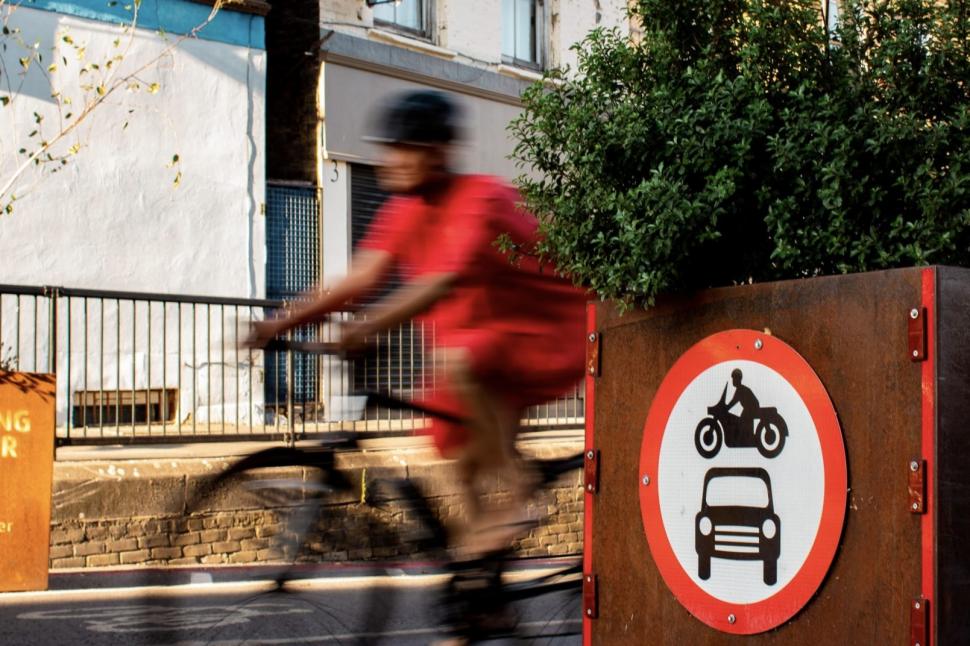

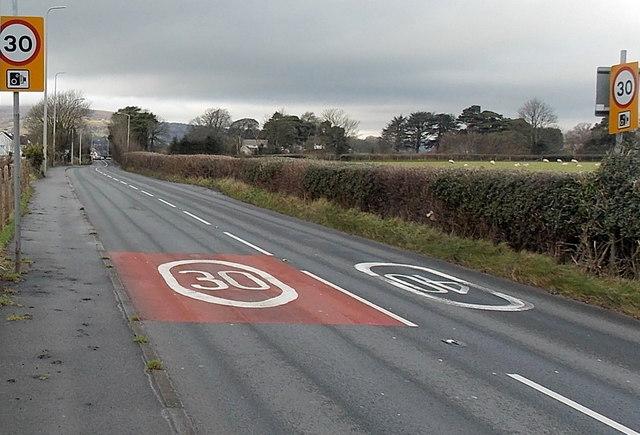
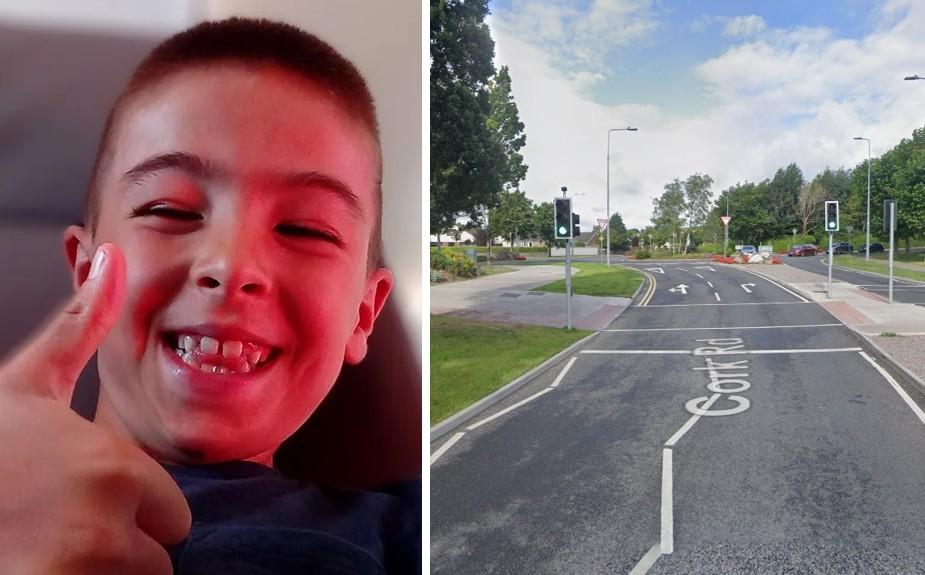
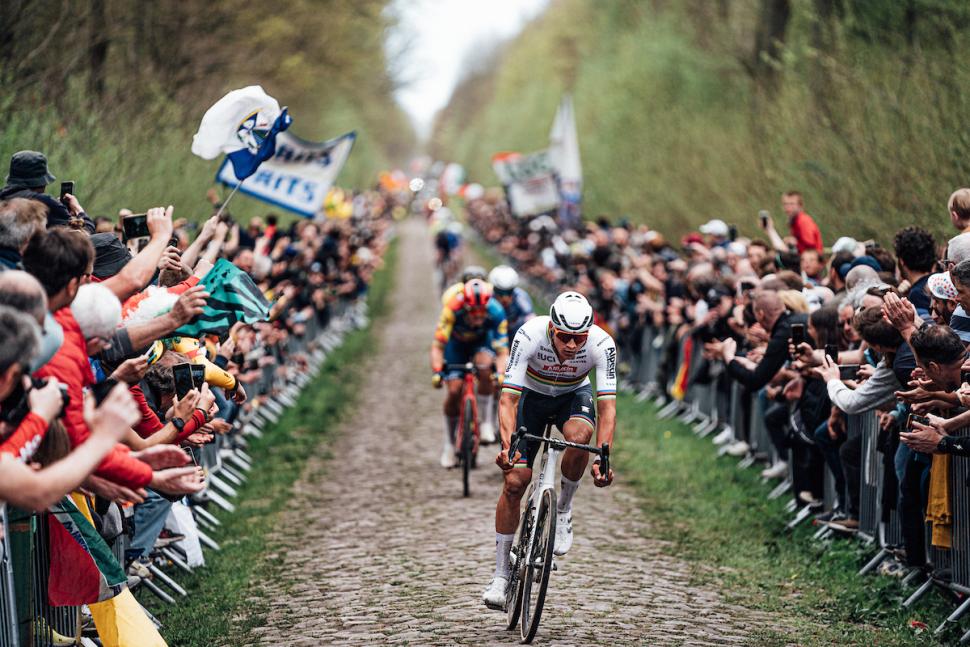

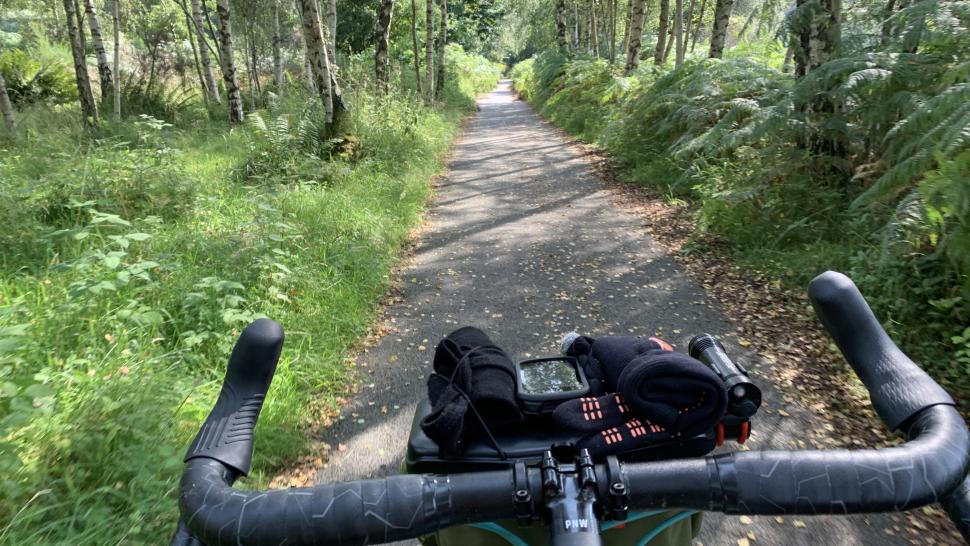
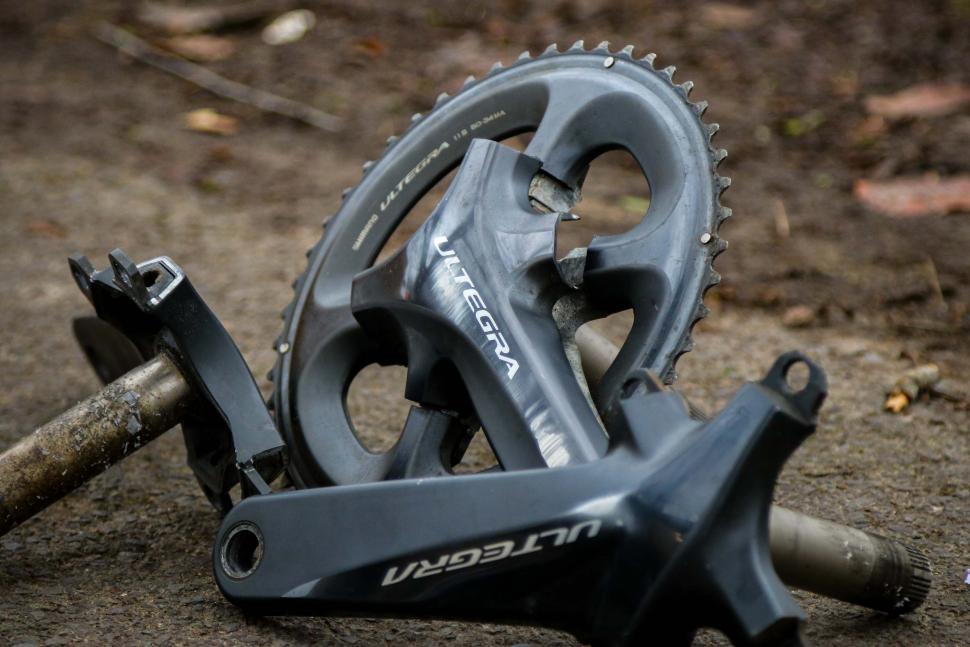
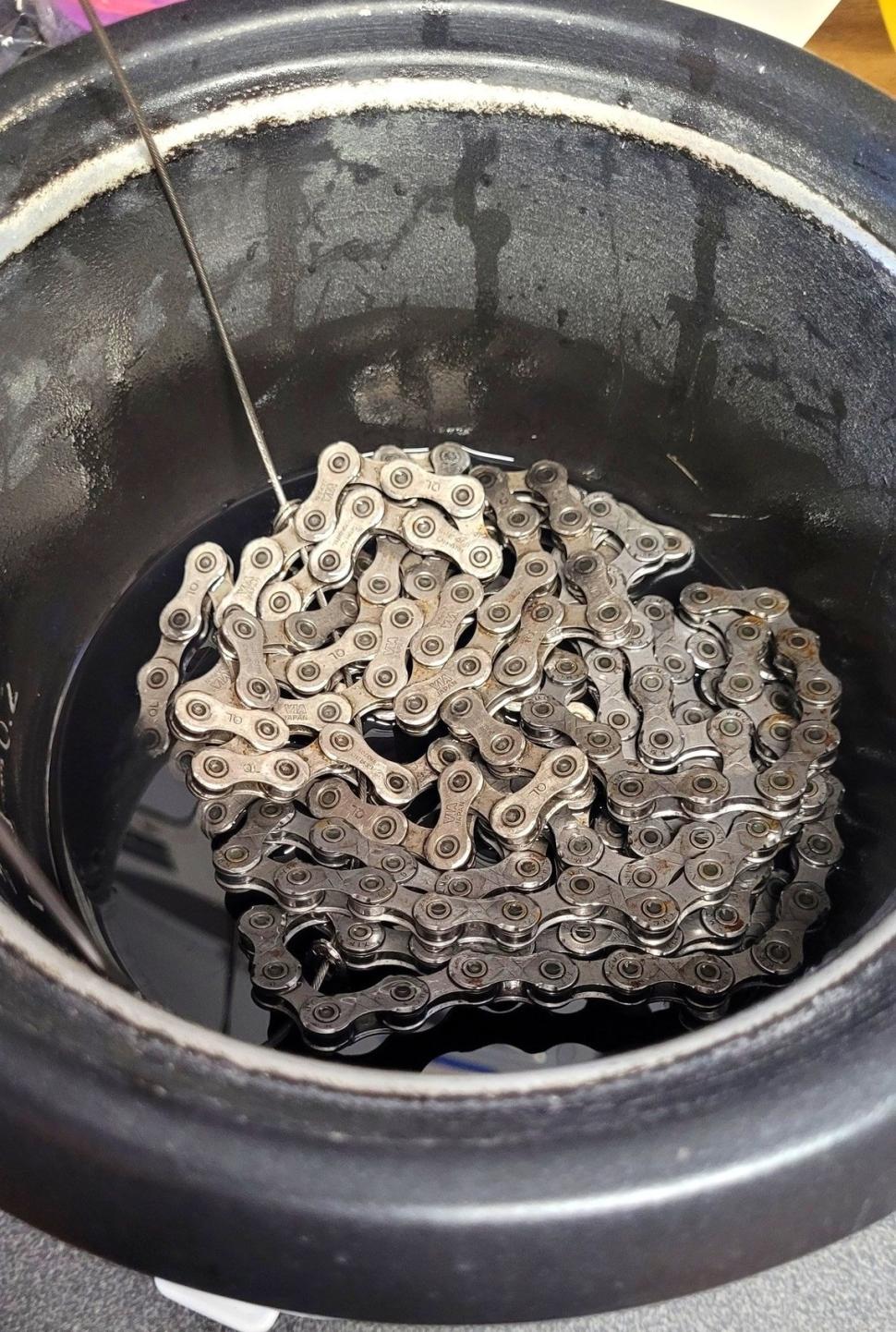

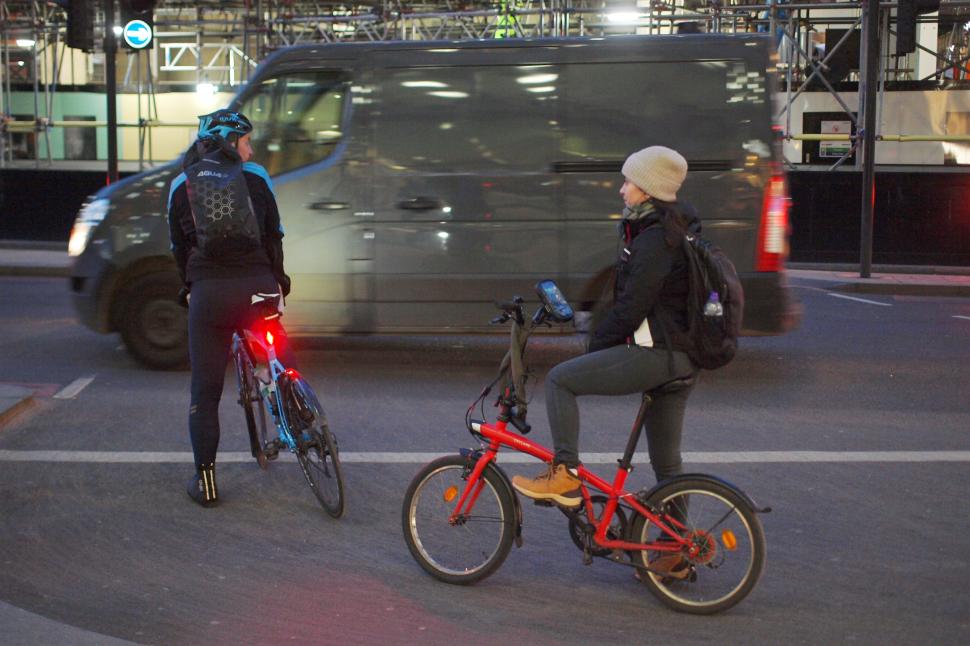
Add new comment
29 comments
Buckingham Palace crash man 'lucky he wasn't shot'
"In mitigation, Aamina Khalid said her client had had a "psychotic episode" on the day of the crash, suffering a relapse of his bipolar disorder, and was "not able to understand what his actions were" as a result."
So someone with a known medical condition that could lead to serious injury/death for others is allowed to keep his driver's licence?
Driving is a priviledge, not a right.
https://www.bbc.co.uk/news/articles/czdl65dzjd8o
Lawyers for people who murder cyclists don't offer defences, they over flimsy excuses which courts and juries are happy to accept because everybody drives do poorly that "it could have happened to anybody". It's always the driver that it "happened to", not the dead cyclist, who's generally reported as some sort of inanimate object.
I thought the TDF Unchained was very well done actually. A lot more interesting frankly than much of the actual race.
I fear for pro-cycling generally when even the TDF moves to expensive streaming platforms. Sponsors will get even less ROI and funding will dry up.
Sustrans being awareded £30 million isn't the god news it might seem, given their propensity to declare any old rubbish as part of the Notional Cycling Network. Including a sandy beach accessible only at low tide.
I hope that any cycling routes that are created are usable in all weathers by all kinds of cyclist on all kinds of bikes, and that they are direct routes between places people want to go.
Apparently they're better now...
Like the government and authorities they're trying to "align" with the pressure to avoid mentioning the "C" word - or indeed doing things which particularly align with the needs of cyclists - appears strong. So it's "Active Travel" - and I'm surprised it's not been renamed the "walking, wheeling and (shh) cycling network". It's certainly pushed as "recreational" which seems to be what we've ended up with in many places.
That's not taking away from the incredible efforts of volunteers who essentially set up a parallel "department for transport" and built / bought / negotiated a country-wide collection of infra (read more in Laura Laker's book).
I have ridden bits of their routes on my commutes for many years, mainly the 5, Birmingham and Reading. Longer bits for recreation. They get my money every month.
As with all commuting and travel routes, you try, and if it's not right you seek alternatives. And hope that you end up with the best compromise.
Oh, I use them all the time - indeed part of the reason I'm living where I am is it's basically right by an off-road "almost-network". And almost always "good enough"; if ... you don't mind dog walkers, unhappy pedestrians, the glass, football and rugby crowds on foot. And the occasional thugs, motorbikes - oh and sexual predators...
If they hadn't built some parts (volunteer / charity effort! Often it seems in spite of LA / government) which "somehow work" (for this lifetime cycler), I wouldn't bemoan the bits which really look like "national sign-off network" or "national sign network".
There's just enough - in some places - so you do start wondering "hey - why do we need to spend time with maps / talking to people to find usable alternatives, or seeking an acceptable compromise? I don't do that when I'm driving - and rarely when walking in urban areas..."
Especially when you realise other places have an urban network (just like for pedestrians / drivers) AND "intercity routes" AND also a country-wide "recreational network" like this [1] [2], AND even greener or more "recreational trails" like this [3] [4] [5]...
My point is the counterfactual - what would we have got if Sustrans weren't so eager to sign off any kind of rubbish? The argument of their defenders is that we wouldn't have anything. The counterpoint would be that there might be more pressure on government at all levels to build something that actually works.
It's like painted cycle lanes on road - we know from proper scientific studies that they actually increase danger to cyclists, so that they are worse than nothing. And indeed, if the budget/political will had been instead applied to creating proper segregated facilities, then we would end up with a proper cycling network!
Accepting low standards just allows decision-makers to claim they are doing something, whilst not actually delivering anything.
Well - like most counterfactuals we'll never know. But I guess you could estimate this by looking at how much "sufficiently good" infra the government and councils built before. I'd say that would amount to ... not much.
It's not quite "nothing" because the UK does seem to go round in cycles. So every decade or so (or is it quarter century?) someone sits up and says "this cycling thing? It seems to have a lot of benefits we'd really like, and it's cheap - do you thing it could ... work?" And stuff gets funded, trials and studies are done... but because "trial" and "in addition to driving, not instead of some driven trips" modal share for cycling only increases to a percent or so, not e.g. 5 - 10% or more. And then events come along and/or the politicians have been there for a bit and become unpopular. And it all gets ditched.
That's a massive "if" there... where would this political will have come from and how (and if it could have ... why didn't it)?
Completely agree ... but the problem with cycling is that the people who need to approve / demand "good enough" * are not the cyclists of today **. Which is a problem, because a) they don't know what good cycling facilities are b) they likely don't understand how convenient and pleasant it could be c) many don't care about cycling and indeed won't be "enthusiasts" even if they become part of "mass cycling" and do cycle themselves d) they have lives they've already built around driving / walking and providing for cycling may mean some change for them.
I have also been scathing about Sustrans back in the past. Having seen just how little support for "doing it at all" never mind "doing it right" there is though I am less certain how it could have been different. (Reading the history in Laura Laker's book was interesting also). Of course, if the government - or maybe even one council or one city/town - had decided to go in a different direction and been able to change quickly enough AND weather the criticism over time ... [1] [2]
* e.g. a safe and convenient cycling network of continuous cycle routes, separated from motor traffic where needed (by distance it's more about "slowing down and reducing motor traffic volumes" and decreasing "permeability" for it), with good social safety and secure parking, which facilitates social cycling e.g. is wide enough for side-by-side.
** To a first approximation we're outliers; the fit and the brave, "enthusiasts", sportspeople ... and/or have less social status e.g. the really poor, those who can't drive - including banned drivers, the young, those with certain disabilities ...
Accepting low standards just allows decision-makers to claim they are doing something, whilst not actually delivering anything
This is a good point. I am frequently guilty of this make-do mentality- I was quite happy with the state of our climbing club cottage in Coniston and would have just left it as it was. 'Dave' pushed renovation through during the lockdowns in 2020 and a lot of work has been done since then, and it's a lot better. Similarly, Tom_77s route below looks OK to me- it's what I expect, and why I'm pretty much always on my gravel bike these days. However, I think we would nearly all agree that 'chopper' cycle infra with paint protection is what onion is really getting at and I completely agree, although our biggest problem is the attitude of the police (NMotD 921 brings out an admission of the 'get yourself KSI'd and we'll see what we can do) not the infra.
National Cycle Route 2, not the best surface, glad I was on my gravel bike.
You keep using this photo. Am I the only person who looks at it and thinks, "She's wearing a thick coat and fur boots, but left her legs uncovered? She must be freezing!" ?
Also, I'm not sure of the ethics of photographing young women cycling without their knowledge/permission.
Not a woman, and I love this site - but I wouldn't particularly want to be used in a picture on it in perpetuity. However, there's generally no restriction on taking photos in public.
We don't actually know the pictures were taken without their permission, they may be friends of Simon's (the photographer) who are quite happy for their images to be used for all we know.
Not sure why the photo being of a woman should raise an 'ethics' question. You haven't raised this question before about men being in photos that they may not consented to ... so why are you raising this about a woman?
The person is in a Public place, with no reasonable expectation of privacy.
Images taken for personal, editorial, artistic, and journalistic purposes in Public do not need the consent of the people in the images.
The person is in a Public place, with no reasonable expectation of privacy
Perhaps HarrogateSpa is part of police BlackOps Division, with the aim of banning cyclists (and drivers!) with cameras because of the reasonable expectation that the images may include women and children. Police dreaming of Paradise?
I'm more concerned about the lady in the second, also frequently-used, photograph with her handbag apparently dangling from the bars and just asking to get caught in the brakes or spokes.
I regularly ride at about -10 °C wearing thinner trousers than jeans. It's not a problem if you're putting out any effort.
I'd be burning up in that puffy coat, though.
Strict Liability Law - 20 years ago I did not support this, because there are careless/negligent/incompetent cyclists too.
Today there is no reason not to implement this. The abundance of Dashcam offerings and at low cost, mean every driver now has the opportunity to provide evidence they were not at fault.
The only question I have, will Strict Liability be applied in the incidents of Cyclist v Pedestrian collisions?
There are, and see the response to your question below. However, note that in cyclists v pedestrians, the cyclist has not brought 2 tonnes to the scene of the crash at up to 70mph (or perhaps even more). Even where the more vulnerable party may be at fault - either partly or wholly - for the cause of the collision, they are not the cause of the scale of the damage or injury caused.
It is entirely reasonable to presume that the person who brings the most kinetic energy with them carries greater responsibility for anticipating the presence and actions of others around them.
According to the wording of the petition, yes.
Exactly
Just as long as everyone remembers a) this has no bearing on criminal court matters, only civil ones *. b) This is about recompense after the fact and is not likely to do much if anything for "safety" [1] [2] [3] (again - civil compensation).
It's still a good idea though! e.g. if people survive it should make it a bit easier to get help to pay for their care. Of course this relies on not being in Scotland, where - if pushed - the police might assist by asking the driver if they remembered this happening, and going away when the driver said "no".
* In theory I guess it could but that is highly unlikely to happen. It would be a radical innovation; I'm not aware of that being the case anywhere else.
"ruin the wax on a molecular level"
Sigh. The wax will melt, and solidify again afterwards. That's all there is to it.
I do my hot waxing in an old electric fondue pan, works just fine.
Melt the wax, turn the temperature down a notch, put in the chain, let it sit for a minute or so, stir it a bit, take it out and turn off the heat. That's it.
Mmmm, fondue… I can't get out of my head this image of your wax bubbling away while you dip components into it on a fork…
Hahaha, that would be my kinda party!
Indeed, best not to tell them about the temperatures and pressures involved in refining crude oil to produce the wax...
When I wax my chain I always get the electron microscope out and examine the wax molecules individually, just to be sure.
No, it's an atomic force microscope you need